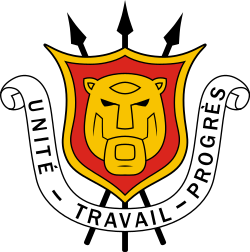| You can help expand this article with text translated from the corresponding article in Esperanto. (May 2025)Click [show] for important translation instructions.- Machine translation, like DeepL or Google Translate, is a useful starting point for translations, but translators must revise errors as necessary and confirm that the translation is accurate, rather than simply copy-pasting machine-translated text into the English Wikipedia.
- Do not translate text that appears unreliable or low-quality. If possible, verify the text with references provided in the foreign-language article.
- You must provide copyright attribution in the edit summary accompanying your translation by providing an interlanguage link to the source of your translation. A model attribution edit summary is
Content in this edit is translated from the existing Esperanto Wikipedia article at [[:eo:Partio por Paco, Demokratio, Repaciĝo kaj Rekonstruo]]; see its history for attribution. - You may also add the template
{{Translated|eo|Partio por Paco, Demokratio, Repaciĝo kaj Rekonstruo}} to the talk page. - For more guidance, see Wikipedia:Translation.
|
